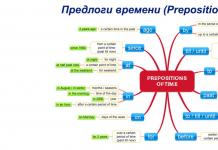Last night, April 3, materials of a journalistic investigation about Vladimir Putin began to appear in the media. Not everyone appreciated the importance of these materials, and this post will allow us to correct this.
What happened
Mossack Fonseca, a Panamanian law firm, has provided offshore company incorporation and management services since 1977. After leaking more than 2.5 terabytes of data (11.5 million documents from 1977 to December 2015), information about the work of Mossack Fonseca came into the possession of the German publication Suddeutsche Zeitung.
400 journalists from all over the world were involved in the investigation, and the data concerned about 200 countries of the world. In the media, all information came from an anonymous source. The source could be hackers or employees of the company itself.
The Mossack Fonseca files contain the names of 29 billionaires on the Forbes list, the names of 12 heads of state, and more than 100 current and former politicians.
Among other names, one can meet the President of Ukraine Petro Poroshenko, the former President of Egypt Hosni Mubarak, the Prime Minister of Iceland Sigmundur David Gunnleigsson, the famous football player Lionel Messi and the actor Jackie Chan.
How important is it
The Financial Times correspondent Max Seddon compares what happened to the simultaneous leak of albums of Kanye West, Drake and Beyoncé, but the current situation is more like a hack of Sony Pictures computers in late 2014, when the media also gained access to a huge amount of data.

The scale of what happened in the Sony Pictures story and the Edward Snowden scandal was initially underestimated by the media, but both leaks led to international conflicts, layoffs and reshuffles, and also spawned dozens of sensational publications in the following months.
Snowden himself commented on the Mossack Fonseca leak, calling it the largest drain in the history of journalism.

There is already one scandal on the account of the “Panamanian drain”: having received a question about offshore companies from a journalist, the Prime Minister of Iceland became nervous and ran away from the interview.
Russian part
The Russian part of the investigation was handled by employees of Novaya Gazeta and the non-profit organization OCCRP (a consortium of journalists investigating corruption). The latter has promised to launch a series of publications based on the Mossack Fonseca papers on April 3rd.
On March 28, Vladimir Putin's press secretary, Dmitry Peskov, warned that foreign media were preparing "a sensational piece of information" about the Russian president.
The Panama Papers contained no papers with Putin's name or signature. All this has only an indirect relation to the President of Russia.
The main character of the Novaya Gazeta material was a close friend of Vladimir Putin - cellist Sergei Roldugin, whom the president has known since the seventies. The president's friendship with the musician is described in Putin's biography called "From the First Person".
Together they went through street fights on the streets of St. Petersburg, which was turbulent at the time; went AWOL together while Roldugin served in the army, and, singing songs, cut through the night Leningrad on the old "Zaporozhets"; they went to the theater together with the “pretty girl Luda”, not yet Putin at that time.
from Novaya Gazeta

Sergei Roldugin
Roldugin's unusual relationship with Russian billionaires has made him the front-runner in Russian media investigations into the Mossack Fonseca documents. Companies associated with Roldugin received tens of millions of dollars "for consultations", and large loans at low interest rates were forgiven for just one dollar.
According to journalists, the “poor cellist” could not have acted in this way on his own, which means that behind him was his “influential friend” Vladimir Putin, for whom Roldugin, apparently, collected billions of dollars in offshore companies.
Novaya Gazeta gives examples of the use of this money: part of the funds went to a loan from the company that built the Igora ski resort, where Putin's daughter played her wedding.
It also turned out that 20% of Video International, founded by the late Mikhail Lesin and occupying up to 70% of the Russian television advertising market, was owned by a company associated with Roldugin. The media claim that Lesin, who died under mysterious circumstances, knew about Roldugin's offshore companies.
In addition, the cellist owned a 15% offshore company that managed Avtoinvest Ltd., which owned a 51% stake in KamAZ. Roldugin's connections with AvtoVAZ were also found.
How did the Russian media react?
The data leak was not covered by all Russian media, just like it was in the case of the alleged "daughter of Putin" Ekaterina Tikhonova and the high-profile story about the killer nanny. For example, there is no news on this topic either on the website of Channel One, or on the page of the NTV channel, or on Lente.ru.



The RIA Novosti agency reported on the incident with a short news article with the headline “German media writes about the alleged involvement of world leaders in offshore schemes.” It reported that journalists accuse "a number of people close to Vladimir Putin."
Vesti.Ru described the leak as a scandal from the football world, twice reporting only that Michel Platini and Lionel Messi were accused of tax evasion, mentioning Mossack Fonseca.

Slon, Meduza, Russian Forbes and RBC, on the contrary, approached the investigation in detail, publishing voluminous excerpts, for the most part based on the Novaya Gazeta investigation.
Meanwhile, the Kommersant newspaper notes that the latest leak is noticeably weaker than a similar leak in 2013, when a database containing “information about the owners of hundreds of thousands of offshore companies in the British Virgin Islands and a number of other offshore companies that do not publish data about the owners of companies.
Investigators could not find direct evidence of corrupt transactions in the databases either for Russia, or for Ukraine, or for other countries.
from the newspaper "Kommersant"
How Russian politicians and businessmen reacted
One of the first Russian politicians to speak about the corruption scandal was the head of the State Duma Committee on Security and Anti-Corruption, Irina Yarovaya.
The number of information attacks against the President of Russia and the unpretentiousness of false stories are like multiple injections of poison in the hope that at least some dose will work. There is no doubt that the object of encroachment are the citizens of Russia.
Will the throwing of poison end there? Of course not. Moreover, by attacking the most powerful national leader, the gentlemen are also training the rest of the already impressionable, accustoming them to the discipline of compliance and obedience.
Irina Yarovaya, Head of the State Duma Committee on Security and Anti-Corruption
Andrei Kostin, President and Chairman of the Management Board of VTB (journalists claim that the companies associated with Roldugin took "gratuitous" loans from VTB's foreign subsidiary) declared that Vladimir Putin was not involved in the creation of offshore companies. He says the accusations come from people "who have no information about financial transactions."
Putin has never been involved in this. This is nonsense.
Andrey Kostin, President and Chairman of the Management Board, VTB
Aleksey Navalny, on the contrary, stated in his blog that the published information was “enough for impeachment.”
A musician, even the most talented and most popular in the world, simply cannot have that much money. State banks do not lend cellists hundreds of millions of dollars.
The oligarchs do not give (let alone forgive later) cellists debts worth billions of rubles. The managers of Rosneft and Sberbank do not turn out obviously criminal deals in order to enrich the offshore musician for another million or two dollars.
Alexey Navalny
The Kremlin explained the information stuffing with “a high degree of Putinophobia” and “an attempt to interrupt the positive from successes in Syria.” According to Dmitry Peskov, the Kremlin expected "better work" from journalists. The spokesman himself stated that his wife never had offshore companies.
Of course, an information product has been created that is being promoted on our domestic political scene. This product is addressed to an internal audience.
Although Putin has never figured factually and other countries and other leaders are mentioned, it is clear to us that the main goal of such stuffing was and is our president in the context of parliamentary elections and in the long term presidential elections, as well as political stability in our country in general.
It is obvious that the spearhead of this attack is directed against our country and against President Putin personally.
Dmitry Peskov, press secretary of Vladimir Putin
How bloggers reacted
Least of all, the journalistic investigation impressed Russian bloggers. According to popular opinion, the news that the President may have offshore assets valued at $2 billion is not amazing.
Many commentators have joked about how small this amount is by Putin's standards, as well as how weak the promised sensation turned out to be.



The failure of the investigation itself was also noted.


Found advantages in a career as a cellist.

At the moment, the sensationalism of the materials, due to which the co-founder of OCCRP read Dmitry Peskov to work late on April 3, remains a matter of interpretation.
Many media outlets note that the documents that were supposed to "change the world" contain mostly circumstantial evidence.

Journalists from the Suddeutsche Zeitung continue to focus on the size of the leak, noting that it contains more than 4.8 million emails, two million PDFs, a million photos, 320,000 text documents and three million databases.
Whether most of this data will turn out to be information garbage remains to be seen.

Many drew attention to the fact that in the drain there is no information about businessmen and politicians from the United States.

However, the Suddeutsche Zeitung hinted that the huge leak would still affect North America, advising “just wait”.

International Consortium of Investigative Journalists (ICIJ) published the results of a new investigation about offshore companies associated with big businessmen and politicians. The publication, titled The Paradise Island Files, is based on 13.4 million documents from an internal file archive of Bermuda law firm Appleby. An unknown source gave the archive to the German newspaper Süddeutsche Zeitung, which shared it with the ICIJ. Russia was represented in the project "New Newspaper" .
Appleby is one of the most prestigious and large law firms providing offshore incorporation, tax planning and corporate governance services that has carefully vetted clients. The company served the largest corporations: Nike, Apple, Facebook, and even the Queen Elizabeth II Foundation of Great Britain, which invested money in the microfinance organization BrightHouse, which issued loans at almost 100% per annum. Regulatory authorities in October 2017 found the terms of many of the loans unfair and ordered the company to pay nearly £15m in compensation to customers. A spokesperson for the Queen said the fund was not aware of any subsequent investment in BrightHouse.
Wealthy Russians mainly turned to Appleby to register aircraft on the Isle of Man - this allowed them not to pay VAT when importing jets into the European Union. This scheme was used by the Rotenberg brothers, Oleg Deripaska, Oleg Tinkov and many others.
In the Appleby database meets and the name of Marina Sechina, the former wife of the head of Rosneft, Igor Sechin. According to the declaration of the ex-husband, who in 2008-2012. was Deputy Prime Minister of the Government of the Russian Federation, with Ms. Sechina in 2008-2010. had zero income, and in 2011 she received 9 million rubles. After her divorce in 2011, Marina Sechina co-founded a firm in the Cayman Islands that was looking to invest in Russian real estate and was linked to the family trusts of Austrian banker and industrialist Julius Meinl. It is not known exactly how much Ms. Sechina invested in the development business; she did not respond to a request from journalists.
Donald Trump's minister of commerce, billionaire Wilbur Ross, turned out to be a co-owner of the shipping company Navigator Holdings, which serves the Russian Sibur. Its minority shareholders are representatives of Vladimir Putin's "inner circle": Gennady Timchenko and Kirill Shamalov. The situation can be regarded as a conflict of interest, writes The Bell: Mr. Ross simultaneously benefits from cooperation with a Russian company and is engaged in foreign policy in the US government, while for Trump now such references are very inappropriate due to accusations of his associates in connection with Russia.
The Paradise Island Files also contains information about Alisher Usmanov's Facebook attachments. He said that he began discussing the first deal to buy shares in the social network in the fall of 2008, during the crisis. According to the investigation, approximately $920 million for the purchase of a stake in Facebook could have been loaned to Mr. Usmanov by a subsidiary of Gazprom, Gazprom Investholding, whose CEO at that time was Usmanov himself. Together with venture investor Yuri Milner, he collected up to 10% of the shares of the social network. After the IPO, which Facebook conducted in 2012, the partners received more than $500 million in net profit. Milner told reporters that he did not know that Usmanov could use state money for investments. Usmanov's spokesman said no state or quasi-state funds have been raised to invest in the social network.
On Sunday, the Süddeutsche Zeitung newspaper from Germany's Bavaria kicked off a new offshore scandal dubbed the "Paradise File". A few months ago, the newspaper came into possession of secret files documenting the activities of dozens of companies and individuals in small countries or in territories with a preferential tax regime - the so-called offshore. Members of the International Consortium for Investigative Journalism (ICIJ), whom the newspaper involved in the analysis of the materials received, drew an analogy of offshores with "paradise territories". So this unusual name of the new dossier appeared.
Targeted at Putin, hit Cameron and Poroshenko
It's impressive. According to the Süddeutsche Zeitung, the dossier was based on 21 leaks, giving an idea of work in 19 offshore jurisdictions - 13.4 million documents. To analyze the information received, the ICIJ consortium attracted about 400 journalists from 67 countries. However, the paperwork took several months. On Sunday, they began to acquaint the world community with it.
This is not the first exposure of firms and individuals hiding their money in offshore oases. The Panama Papers made a lot of noise last year. Then more than a million documents for internal use of the law firm Mossack Fonseca, registered in Panama, got into print.
This is how data on offshore accounts of 140 politicians and civil servants, including world leaders, was opened. The Western press excitedly wrote about the tax evasion of "representatives of kleptocratic regimes: from Russia and Africa to China." No one hid that the leak itself was arranged in order to find "billions of Vladimir Putin."
Gossip about his condition emerged soon after Putin's Munich speech in 2007. They talked about the amount of about 40 billion dollars. They tried to present this money to the Russian and world public before the elections. However, no one found the account of the Russian president. Only the $2 billion offshore story of the famous cellist Sergei Roldugin was revealed.
Roldugin was directly connected with the President of Russia by the media. According to the British Guardian, Sergei Roldugin is a close friend of Vladimir Putin. "He introduced Putin to his future wife, Lyudmila, and became godfather to his eldest daughter, Maria." On this basis, the newspaper concluded that in fact the funds attributed to the musician belong to Vladimir Putin.
Roldugin tried to explain the origin of money. He even talked about how he buys unique musical instruments for the state collection at his own expense. But no one listened to him. Newspapers still practiced variations about how “Putin’s money is kept offshore in the accounts of dummies” (they cited the names of other well-known Russian businessmen as an example), but soon ran out of steam.
Assumptions about Putin's money have overshadowed the real facts about the accounts of Ukrainian President Petro Poroshenko, Icelandic Prime Minister Sigmundur Gunnleigsson (together with a whole group of Icelandic officials, bankers and businessmen, including the finance minister and home secretary), British Prime Minister David Cameron and a dozen more world leaders.
Cameron soon resigned, lost their posts and Icelandic ministers, along with their prime minister. The West aimed at Putin, but actually got burned on offshore fraud. The media soon became willing to explain that tax evasion was actually a perfectly legal act. But government officials cannot use these schemes. The topic was quietly put on the brakes.
Offshore money - instead of the European budget
They are also trying to connect the "Paradise Dossier" with the Russian president. All this looks even less convincing than in the Panama Papers. The Russians who fell under the distribution (Igor Shuvalov, Arkady and Boris Rotenberg, Oleg Deripaska, Roman Abramovich, Alisher Usmanov, Marina Sechina, Putin's classmate Nikolai Yegorov and others) were convicted of registering private planes in offshore companies. Even Western experts do not consider this a serious violation, but just a convenient form for using jets.
The "Russian trace" is now playing out on US Secretary of Commerce Wilbur Ross. There were no American citizens in the Panama Papers at all. Although even people far from business were “hooked” in tax evasion, such as Argentine football player Lionel Messiah, Hong Kong actor Jackie Chan, Spanish director Pedro Almodovar and others.
Wilbur Ross, according to the Süddeutsche Zeitung, is connected through a network of offshore companies registered in the Cayman Islands with the UK-registered shipping company Navigator, which in turn fulfills orders for the Russian petrochemical holding Sibur for the transportation of liquefied gas.
That's it. The minister was caught in the most serious crime for today's America - cooperation with the Russians. Knowing this, the German newspaper was no longer shy and finished off Ross with the headline of the article “Trump's minister makes money on deals with Russia.” At the same time, SZ went over the American president. Let him justify himself now, like Roldugin for Putin.
There is another reason for Trump not to relax. The Bavarian newspaper devoted a separate article to the Russian investor Yuri Milner. He had the good fortune to acquire large stakes in the social networks Facebook and Twitter. For this deal, according to the newspaper, Milner borrowed money from VTB and Gazprom, which, according to German analysts, cannot be done without the direct support of the Kremlin.
So what awaits Trump now is not just cyber warfare and attacks by Russian hackers, but Putin's full control over American social networks. However, this story is not entirely European. Especially against the background of information about tax evasion by companies in the European Union itself. There are many interesting things here, showing that kleptocracy has taken root not only in “regimes: from Russia and Africa to China.”
Analyzing the "Paradise Dossier", the Süddeutsche Zeitung comes to the conclusion that the European Union annually loses 60 billion euros in taxes on corporate profits due to the fact that international concerns are registered in tax havens - offshore. This is about one-fifth of all corporate tax deductions in the EU.
The newspaper refers to the calculations of the French economist Gabriel Zucman. He estimated Germany's losses at 17 billion euros, almost a third of the country's corporate income tax. France could receive 25 percent more taxes from its companies than now, Great Britain - 20 percent.
It is strange that the Bavarian newspaper is surprised by this. After all, global business did not arrange tax havens for enterprising Russians and other Africans and Chinese. By the way, The Paradise Papers again paid little attention to American corporations, but noted a very characteristic detail.
Europeans hide their income not on some exotic oceanic islands, but right on their native continent. Germany, for example, loses most of its potential corporate tax revenues (up to about two-thirds) in offshore companies within the European Union - the Netherlands, Ireland or Luxembourg.
In this regard, the proposal of German Finance Minister Peter Altmaier, made on Tuesday in Brussels, looks rather strange. As Deutsche Welle reported, Altmaier urged his colleagues to resolve before the next meeting of EU finance ministers, scheduled for December 5, “all conditions and issues related to the publication of a black list, which should include countries and territories that do not adhere to basic tax control standards. ".
The proposal is strange because everyone knows about European offshore companies even without a black list. They started talking about immediately after the publication of the Panama Papers, but things did not go beyond talk. The discussion is now in its second round. French Finance Minister Bruno Le Maire even suggested that the International Monetary Fund and the World Bank stop financial support for states that refused international cooperation in the fight against tax evasion.
However, the Frenchman was immediately answered from Luxembourg. The head of the Ministry of Finance, Pierre Gramegna, objected to the reduction in international investment. “Inclusion in the black list will in itself be a rather severe punishment,” Gramegna said. So, since decisions in the European Union are made by consensus, things are unlikely to go further this time either.
What the Europeans really agree on is the search for Vladimir Putin's billions. They are persistently sought. But they find only their own money, illegally hidden in tax havens - offshore. The publication of the Paradise Papers documents continues. Information about the dubious financial transactions of the US Secretary of State Rex Tillerson, the British Queen Elizabeth II, and other world famous people flashed in the press. It's getting more and more interesting...
Which everyone is discussing, but it is unlikely that everyone will read it due to the large volume and different languages of publications.
I’ll answer right away, it’s important to understand: the investigation is based on leaked data one of Panamanian law firms. So this is not even “the tip of the iceberg of offshore property of officials”, but a very small part of it.
Nevertheless, this small part is quite drawn to impeachment. Here are the most entertaining facts and findings that directly concern the citizens of Russia:
Vladimir and Lyudmila Putin with a newborn (in the center) and wife Roldugina. 1985
1. Cellist Roldugin is one of Putin's wallets.
One of Putin's real wallets was discovered. This is not some businessman who profits from state contracts. Sergei Roldugin is an old friend and godfather to one of Putin's daughters. A person who did not cause suspicion, was not involved in business. Musician, what kind of money and offshores are there? But it turned out that a modest musician was driven at least $ 200,000,000 into offshore accounts.
When you are the president of an authoritarian country, it is very easy to steal money from the budget. It's harder to hide them. Even harder to spend. Of course, we understand that the capitals of Timchenko, Rotenberg and Kovalchuk also belong to Putin to one degree or another. But still, one cannot consider, for example, the Rotenbergs as completely nominal holders - they completely manage the business. When you use Rotenberg's money for (and their grandmothers), scandals like the recent one are possible.

Putin's idea was to keep personal stolen money in the most unexpected place, with the most unexpected character - a famous cello musician, a loyal and honest person (in relation to the boss) and, apparently, quite modest even in everyday life. No red Ferraris and other nonsense.
But this cunning plan also has a downside. A musician, even the most talented and most popular in the world, simply cannot have that much money. State banks do not lend cellists hundreds of millions of dollars. The oligarchs do not give (let alone forgive later) cellists debts worth billions of rubles. The managers of Rosneft and Sberbank do not turn out obviously criminal deals in order to enrich the offshore musician for another million or two dollars.
Roldugin cannot say a single word clearly about “his” offshore empire. Indeed, what can I say, a delicate question:

Medvedev, Roldugin, Putin
“Guys, to be honest, I can’t give any comments right now. I have to look and understand what can be said and what cannot be said. I'm just afraid to give interviews. When I refused to give interviews to some Germans, they wrote that Putin had so intimidated his acquaintances and friends that they were afraid to speak. This is how they show me. I understand that there are very important things here. Are you in business or not? Where does the money come from? Whose? This is all I know. These are delicate things"
6. Liksutov earns not only on trains and metro, but also on methanol.
From the Panamanian leak, we learned that Liksutov's business is quite diversified. The Minister of Transport of Moscow earns not only on transport, but also on methanol trade.
7. Another old friend of ours, Alexander Babakov, turned out to be the owner of a Panamanian offshore.
We write long and hard about Alexander Babakov, one of the poorest deputies of the State Duma, judging by the declarations. We have already found him and. The Panama Files link him to the largest player in the Ukrainian energy market - VS Energy.
We all wondered why the Ukrainian authorities, who put Babakov on the sanctions list, are not taking any action against him. Now it's clear - undeclared Panamanian offshore companies were also discovered by Petro Poroshenko.
8. A number of officials directly violate the law prohibiting them from owning foreign assets
They just don't follow the law, that's all. Because they can. Deoffshorization? No, we haven't.
This list includes United Russia deputies Zvagelsky and Slipenchuk, the governor of the Chelyabinsk region Dubrovsky and the bandit governor Turchak.
9. Relatives of the most violent patriots keep their money offshore. In general, everyone keeps their money offshore.
Relatives of the head of the Security Council Patrushev, the head of Rostec Chemezov and were caught here. Another Deputy Interior Minister Makhonov found as many as 5 operating offshore companies. Even the Chechen senator Geremeev - the uncle of the Geremeev who organized the murder of Nemtsov - found an old offshore. The former deputy Kozhin from the Office of the President also has a Panamanian offshore. And the son of the "liberal" Ulyukaev with his wife - again offshore in Panama.
There seem to be so many surnames that it's impossible to remember? I remind you once again: we are talking about a leak from ONE registrar company. Only in Panama, not even the most popular offshore jurisdiction.
How many more officials and their relatives hide their money in the British Virgin Islands, Belize, Cayman Islands, Bermuda, Liechtenstein and Cyprus?
The example of the leaks from Panama proves to all of us that sooner or later the most well-hidden assets will become public. Thanks to the journalists of the OCCRP consortium for a work of enormous scale and importance.
The Queen of England, the American Secretary of State, the Canadian Prime Minister were exposed
Another batch of high-profile revelations about the billions hidden in offshore "paradise" was made public by the International Consortium of Investigative Journalists (ICIJ), who obtained access to documents from the law firm Appleby. These documents speak of dubious operations to conceal income, in which many famous businessmen and politicians are involved. The shadow of a loud scandal covered the Queen of England, the Prime Minister of Canada, the US Secretary of State. Both Russian companies and entrepreneurs appear on the lists.
This is not the first such exposure of a consortium based in Washington, financed, in particular, by one of George Soros' foundations. Earlier, ICIJ has already published the so-called "Panama dossier" with data on offshore accounts of a number of world politicians. The authenticity of the documents was not confirmed, and official denials followed in relation to most of the persons mentioned in them.
Queen Elizabeth II herself adorns the current black list of revelations: allegedly, the Duchy of Lancaster, which manages finances for the queen's personal income, invested about £10 million in funds in Bermuda and the Cayman Islands in 2004-2005. Some of this money later surfaced at the financial institution BrightHouse, which was accused of issuing microloans on improper terms:
US Secretary of State Rex Tillerson is charged with being the director of an offshore firm based in Bermuda in 1997. This firm, according to The Guardian, was associated with ExxonMobil, which Tillerson later headed.
As for Canadian Prime Minister Justin Trudeau, his adviser Stephen Bronfman, through his family's business, was allegedly involved in a complex tax avoidance scheme with companies in the US, Israel and the Cayman Islands.
The press services of all the mentioned structures and high-ranking officials, of course, denied any violation of tax laws in all of the above cases.
Of the Russian banks and companies, VTB, Sibur and Gazprom are mentioned on the scandalous list. It follows from the published documents that Sibur cooperated with the transport company Navigator Holdings of Wilbur Ross, appointed in February 2017 by the US Secretary of Commerce. The piquancy of this connection, according to investigators, is given by the fact that among the shareholders of Sibur there are entrepreneurs Kirill Shamalov and Gennady Timchenko, who fell under US sanctions. It is clear that this information hits not so much Russian businessmen as the positions of the American minister. Therefore, his representatives hurried to make a statement that Ross joined the board of directors of Navigator after the company began working with Sibur, and never met with Shamalov and Timchenko.
As for VTB and Gazprom, the “compromising evidence” on them lies in the fact that they, being, according to the ICIJ, state structures close to the Kremlin, participated in financing the transactions of the well-known Russian entrepreneur Yuri Milner to acquire shares in Facebook and Twitter. Milner himself, in an interview with the New York Times, noted that his firm received only 5% of the funds for these transactions from Russian state institutions.
A very skeptical comment about the "Russian trace" in the ICIJ investigation
given by a member of the Federation Council Konstantin Kosachev. “The bottom line is describing standard and legal commercial activities, which, through the manipulation of emotions and muddy phraseology, are presented almost as a conspiracy against the fundamental principles of Western democracy,” the parliamentarian believes.
Nikita Maslennikov, head of the Economics and Finance project at the Institute of Contemporary Development, linked the current appearance of another portion of revealing tax materials with the fact that very soon - from January 1, 2018 - the anti-offshore convention of the Organization for Economic Cooperation and Development (OECD) comes into force. It involves the exchange of tax information at the request of the participating countries, including all the leading economies of the world, including Russia. In other words, our tax authorities, upon request, can receive from their foreign colleagues all the information they are interested in about the foreign accounts of Russian tax residents - and then decide whether this information contains some kind of crime or not. “This means that the notion of banking secrecy and tax haven is being greatly eroded,” Maslennikov said. “But until this happens, there is a kind of warming up of the information field.”




















